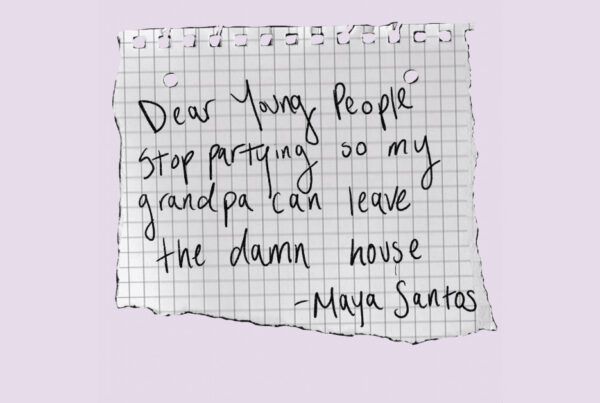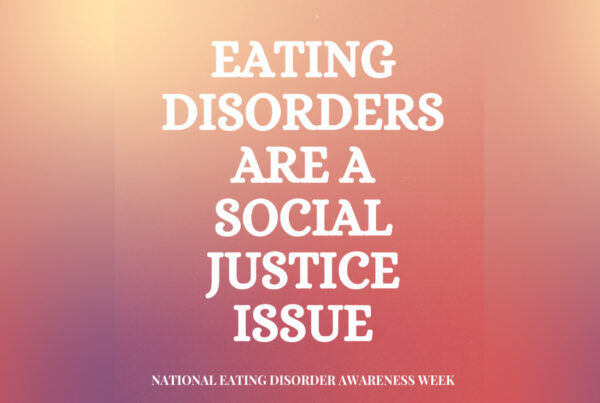How to Explain Your Side and Decision to Vote to “Non-Political” Friends
In our current climate, I would argue that it is fairly difficult to hold onto the conviction that someone can be “non-political.” While our nation is in upheaval, and basic human rights are being fought for to be created and maintained, it seems difficult to imagine that one can simply be uninterested.
However, I often find myself struggling to read the news everyday to stay informed, most recently with regards to the upcoming presidential election. Sometimes it’s just more appealing to throw on some Netflix and look away for a bit.
Politics are so prevalent that it is almost impossible to ignore them completely. Almost. Apathy is a defense mechanism, and it is synonymous with privilege. We can ignore issues that do not directly affect us because they do not directly affect us.
Back to your “non-political” friends. I put this term in quotes because, as previously mentioned, “non-political” doesn’t really exist, only disinterest. So how do you engage in conversation with someone who is avoidant over the issues that are constantly running through your mind? How do you discuss your excitement to vote with someone who isn’t even registered?
Do Your Research
First, make sure you have all the information. I know this seems obvious, but I myself have been in conversations where I let my beliefs take over, and I put words in my favored politicians’ mouths. To get your point across, know what you’re talking about! Even checking your favorite politician’s website or reading a few different newspaper articles about the issue you are discussing is helpful.
Ask Questions
Second, try putting yourself in your “non-political” friends’ shoes. Ask yourself, why does this person seem so reluctant to discuss politics? A survey conducted by the PEW Research Center in August 2020 said that 55% of social media users in the U.S. are “‘worn out’ by political posts and discussions.” My generation especially (millennials/Gen Z) is surrounded by social media, and we have the news cycle constantly buzzing in our ears. It can be easy to forget that not everybody is an active participant in politics. This obviously makes it harder to engage with someone in a discussion about combating climate change, for example.
Instead of getting disheartened or allowing yourself to be shut down, ask questions. In an interview with the American Psychological Association, Dr. Tania Israel, a professor in the Department of Counseling, Clinical, and School Psychology at the University of California, Santa Barbara, discusses engaging in political dialogue with those of opposing views. Her advice can apply to discussions with those who are “non-political” as well. One of the points that stood out to me was her suggestion that if you have the opportunity to engage in a dialogue and learn from someone on the other side, why would you turn that down? Wouldn’t it be of interest to you to find out why they feel that way? By asking questions, you can try to find out why they aren’t engaged and explain your own side without preaching.
Calm, Cool, and Collected
Third, don’t preach. We have all had conversations with people who take over and try to “explain their side” by simply telling you why you are wrong. And we all know our instinct is to simply stop listening. Nobody likes being yelled at, so don’t be that guy!
Situations tend to escalate quickly when we talk about things we are passionate about, especially politics. It is important to make sure you are talking to said person, not yelling at them. According to Dr. Susan Heitler, asking questions and staying cool are two of the more important factors in engaging in political discussion (and keeping your friends).
View the Conversation as an Opportunity
Explaining why you care so much about our government and why you are choosing to vote can be a daunting task, but it is worth it if it means you can get even one more person to get engaged in politics. At the end of the day, it is so important to make your voice heard, not only in this monumental election but in every election, from local to national. Talking with friends and family about politics can already be tough when they are engaged in the political news cycle, so it’s even tougher when they’re not. All this means is that we try a little harder, attempt not to preach, and explain why we care so much in a way that is calm, collected, and informative.
Passion is infectious, and maybe, just maybe, you can even get someone to show up on election day and make their voices heard.

Claire Beaver, Content Creator






